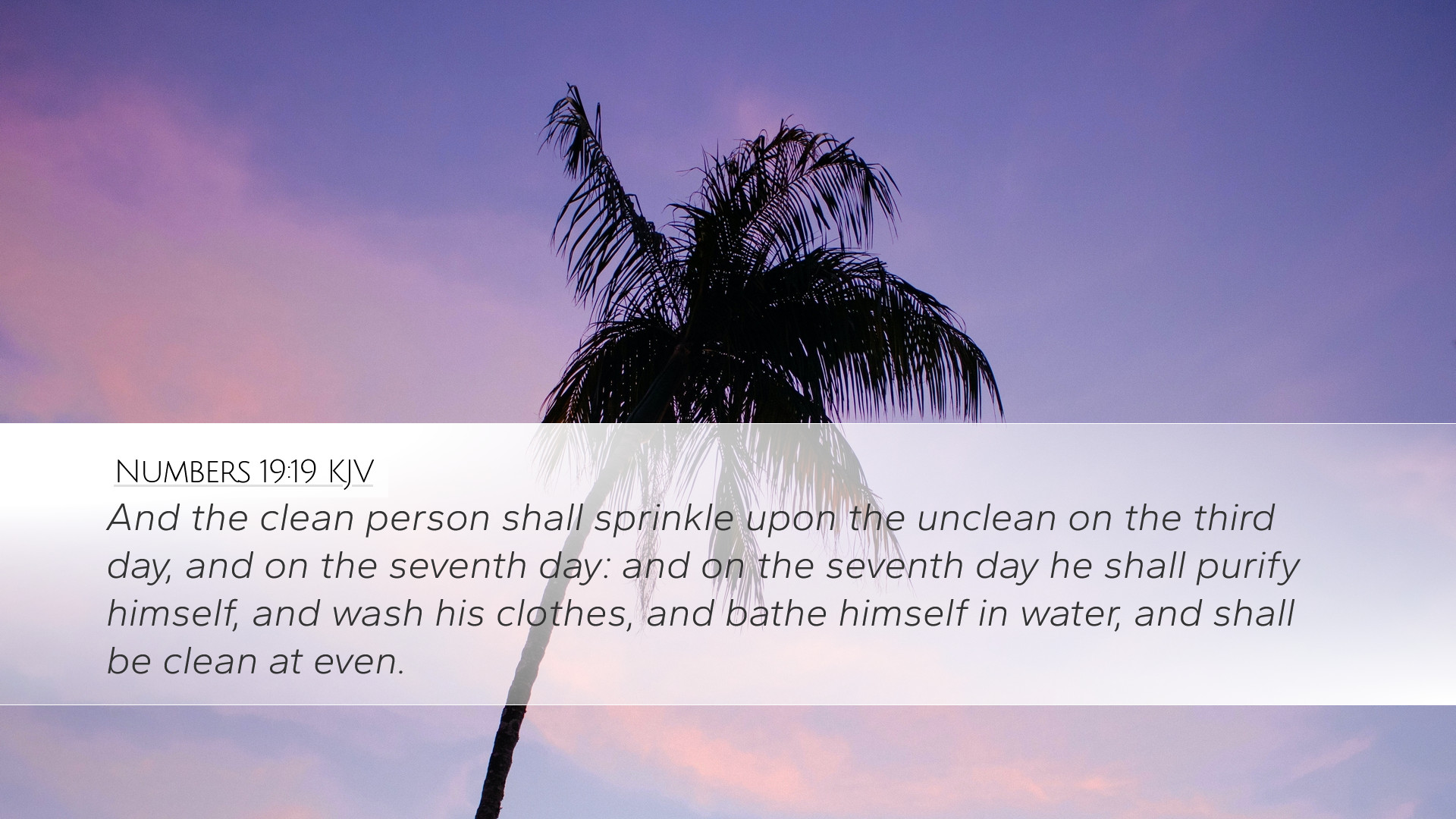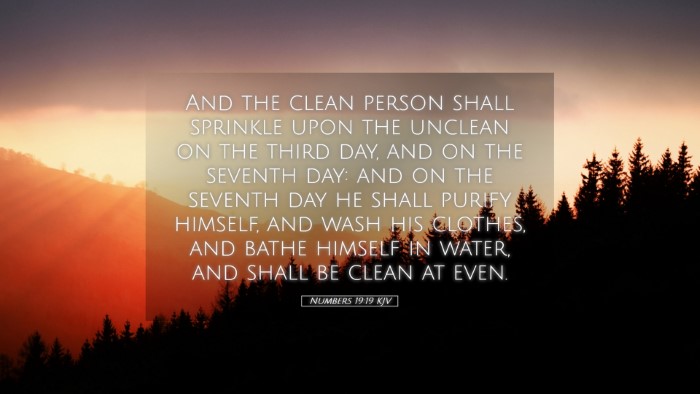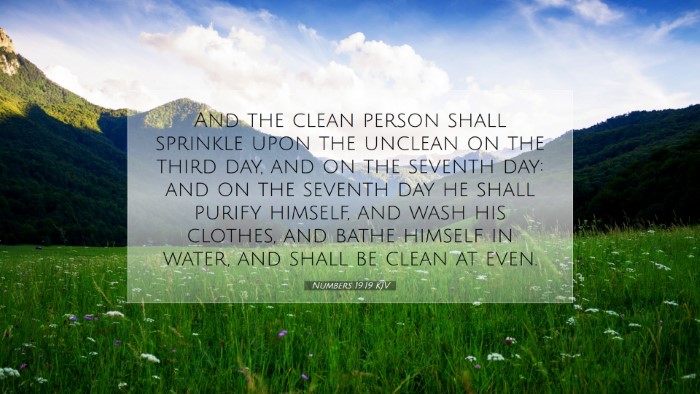Commentary on Numbers 19:19
Numbers 19:19 states:
"And the clean person shall sprinkle upon the unclean on the third day, and on the seventh day: and on the seventh day he shall purify himself, and wash his clothes, and bathe himself in water, and shall be clean at even."
Overview
This verse is part of the instructions regarding the purification rites associated with the ashes of the red heifer, which are crucial for maintaining holiness in the Israelite community. The ritual underscores the importance of cleanliness, both physical and spiritual, highlighting the concepts of sanctity, sin, and the means of atonement.
Insights from Matthew Henry
Matthew Henry observes that the ritual of sprinkling symbolizes the application of divine grace being transferred upon the unclean individual. He emphasizes the significance of the "clean person" acting on behalf of the unclean, presenting a profound typology of Christ’s atoning work.
-
Symbolism of Cleanliness: Henry elaborates that cleanliness here signifies the holiness of God and the inherent need for humans to strive for purity in their lives.
-
Days of Purification: The delineation of the third and seventh days illustrates a progression in the spiritual journey; the third day symbolizes resurrection and renewal, while the seventh represents completion and rest.
Insights from Albert Barnes
Albert Barnes provides a detailed explanation regarding the significance of the clean person who performs the sprinkling. He notes that this act represents not only physical cleansing but also a deeper sacramental significance.
-
Transfer of Purity: Barnes emphasizes that the action of the clean person signifies the impartation of purity, reflecting the divine initiative in cleansing the sinner.
-
The Role of the Community: He also highlights the communal aspect of this ritual, where the responsibilities of holiness are shared among the Israelites, illustrating the importance of accountability in spiritual matters.
Insights from Adam Clarke
Adam Clarke delves deeper into the specifics of the ritual practice and its implications for Israelite society. He views the process as a necessary preventive measure against the spread of ceremonial impurity within the community.
-
Ceremonial Impurity: Clarke discusses how contact with a dead body—symbolizing sin and spiritual death—necessitated this elaborate cleansing process to restore individuals to a state of holiness.
-
Significance of Water: He draws attention to the importance of water in the purifying process, likening it to the Word of God, which cleanses the believer.
Theological Themes
This verse touches on several crucial theological themes that bear relevance across both the Old and New Testaments:
-
Holiness of God: The requirement for purification reflects God’s holiness and the need for His people to be set apart from impurity.
-
Substitution and Atonement: The ritual can be viewed as a foreshadowing of Christ’s ultimate sacrifice, where he became the ultimate purifier for sin.
-
Community Accountability: Emphasizing that the health of the community is tied to individual purity reiterates the importance of communal and corporate responsibility in spiritual matters.
Practical Applications for Today
The principles derived from Numbers 19:19 extend beyond ancient rituals to inform contemporary practices among believers:
-
Spiritual Renewal: Modern believers are reminded of the necessity of ongoing spiritual renewal and accountability in their relationships, paralleling the days of purification.
-
Community and Holiness: The shared responsibility of maintaining holiness within the church should encourage believers to uphold one another in their journeys of faith.
-
Grace and Cleansing: Just as the clean person administered purification, Christians are called to extend grace and share the hope of cleansing found in Christ to those around them.
Conclusion
Numbers 19:19 serves as an important reminder of the intricate relationship between sin, impurity, and the process of spiritual cleansing. The insights gathered from Matthew Henry, Albert Barnes, and Adam Clarke provide a rich body of thought for pastors, students, and theologians alike, urging them to consider both the historical context and the ongoing implications of holiness and atonement in the life of believers.


